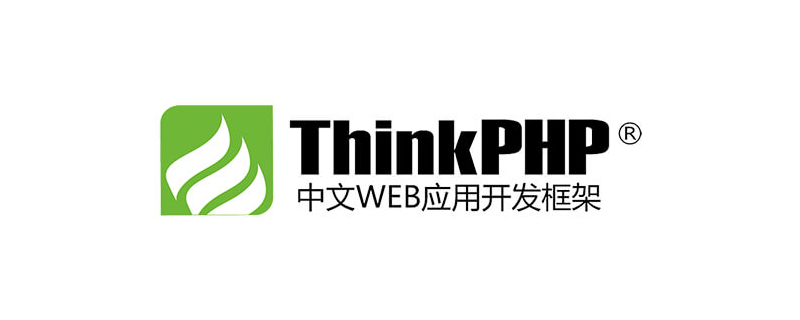Home >PHP Framework >ThinkPHP >What databases does thinkphp support?
What databases does thinkphp support?
- 藏色散人Original
- 2021-12-21 11:09:312373browse
Thinkphp supports databases such as MySql, MsSql, PgSql, Oracle, and Sqlite. The latest version already provides PDO support. The selection of database has nothing to do with business logic.

#The operating environment of this article: Windows 7 system, thinkphp v5.1 version, Dell G3 computer.
Which databases does thinkphp support?
The supported databases are MySql, MsSql, PgSql, Oracle, and Sqlite. The latest version has provided PDO support, database selection and business Logic doesn't matter.
thinkphp Introduction:
ThinkPHP is an open source lightweight PHP framework born to simplify enterprise-level application development and agile WEB application development.
was first born in early 2006. It was officially renamed ThinkPHP on New Year's Day 2007, and was released under the Apache2 open source agreement. ThinkPHP has been adhering to the simple and practical design principle since its birth. While maintaining excellent performance and minimal code, it also focuses on ease of use. And it has many original functions and features. With the active participation of the community team, it is continuously optimized and improved in terms of ease of use, scalability and performance.
ThinkPHP is a fast, compatible and simple lightweight domestic PHP development framework. It was born in early 2006. It was originally named FCS. It was officially renamed ThinkPHP on New Year's Day in 2007. It is released under the Apache2 open source agreement and transplanted from the Struts structure. It has made improvements and improvements, and also borrowed many excellent foreign frameworks and models, using object-oriented development structure and MVC model, integrating the ideas of Struts and TagLib (tag library), RoR's ORM mapping and ActiveRecord model.
ThinkPHP can support server environments such as windows/Unix/Linux. The official version requires PHP5.0 or above. It supports MySql, PgSQL, Sqlite databases and PDO extensions. The ThinkPHP framework itself has no special module requirements. The specific application system operating environment requirements depend on the modules involved in development.
As an overall development solution, ThinkPHP can solve most needs in application development, because it includes the underlying architecture, compatibility processing, base class library, database access layer, template engine, caching mechanism, and plug-ins Mechanism, role authentication, form processing and other commonly used components, and it is more convenient for cross-version, cross-platform and cross-database transplantation. And each component is carefully designed and perfected, and the application development process only needs to focus on your business logic.
Recommended learning: "The latest 10 thinkphp video tutorials"
The above is the detailed content of What databases does thinkphp support?. For more information, please follow other related articles on the PHP Chinese website!

